Have you ever noticed your child squinting at the TV, holding books closer than usual, or tilting their head to see better? These could be signs of an underlying vision problem. Unlike adults who can easily communicate a blurry vision or headaches, young children often don't realize there's an issue. As a parent, it's essential to take proactive steps to ensure your child's eye health.
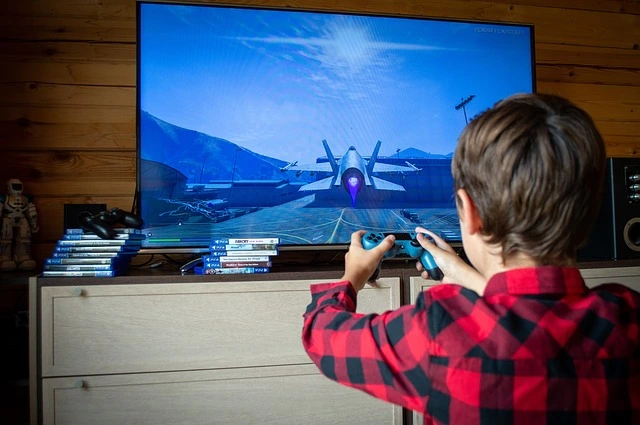
This might be a familiar scenario for many parents. Young children are notoriously bad at communicating vision problems. Unlike adults who can say their eyes are blurry or they have headaches, kids often don't realize there's an issue. So, how do you know when it's time for your child's first eye exam, and how often should they get them after that?
This guide will explore the importance of early eye exams, the recommended schedule for checkups, and the telltale signs that might indicate a vision problem. By understanding these key points, you can ensure your child sees the world clearly and experiences all the wonders it holds.
The Importance of Early Eye Exams
Just like their bodies, children's eyes are constantly growing and developing. Regular eye exams are crucial for ensuring this development happens smoothly. Early detection of any vision problems can make a world of difference. Conditions like amblyopia (lazy eye) are most treatable in childhood. If left undiagnosed, they can lead to permanent vision loss.
To Schedule regular eye exams with Dr. Yakubov and a team of eye care experts, Visit Elite Eye Care, New York.
The Eye Exam Schedule for Your Child
Here's a general guideline for your child's eye exams, recommended by organizations like the American Optometric Association (AOA):
6-12 months: An initial exam to check overall eye health and detect abnormalities. This exam might be simpler than a standard adult exam, but it's vital for identifying problems like strabismus (crossed eyes) or cataracts.
3 years old: IAnother checkup to assess vision development. This exam often utilizes preferential-looking techniques, where your child chooses between images with varying clarity to determine their visual acuity.
Before Kindergarten (around 5 or 6 years old): A comprehensive exam to ensure your child is ready for the visual demands of school. This exam will likely involve a variety of tests, including visual acuity checks, eye teaming and tracking assessments, and a check for color vision deficiencies.
School Age (6-19 years): Annual eye exams to monitor vision and eye health. These exams help ensure your child's vision keeps pace with their growing academic needs and can identify potential changes.
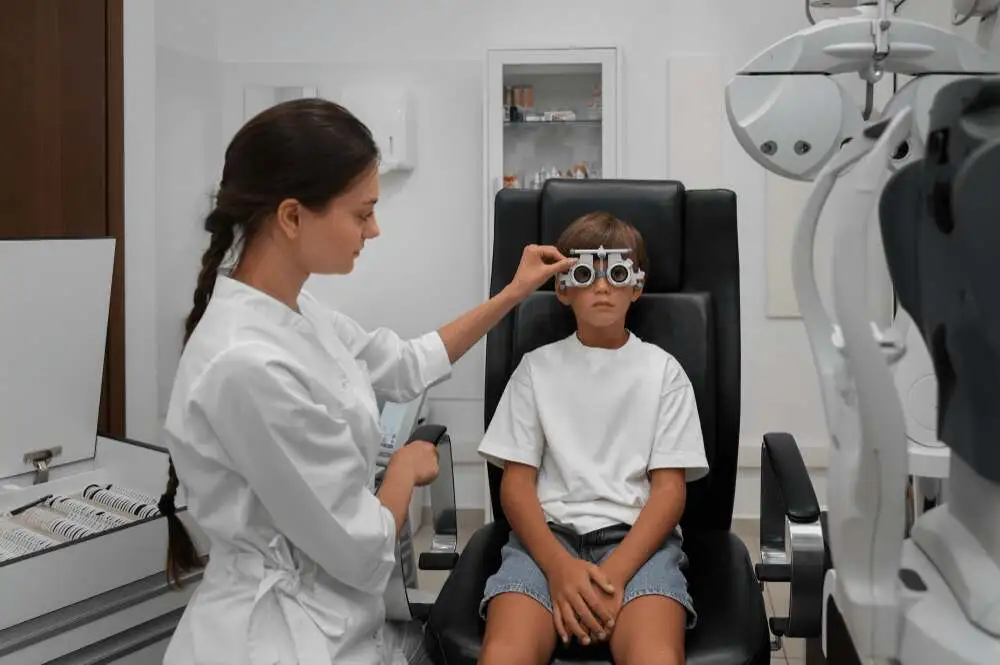
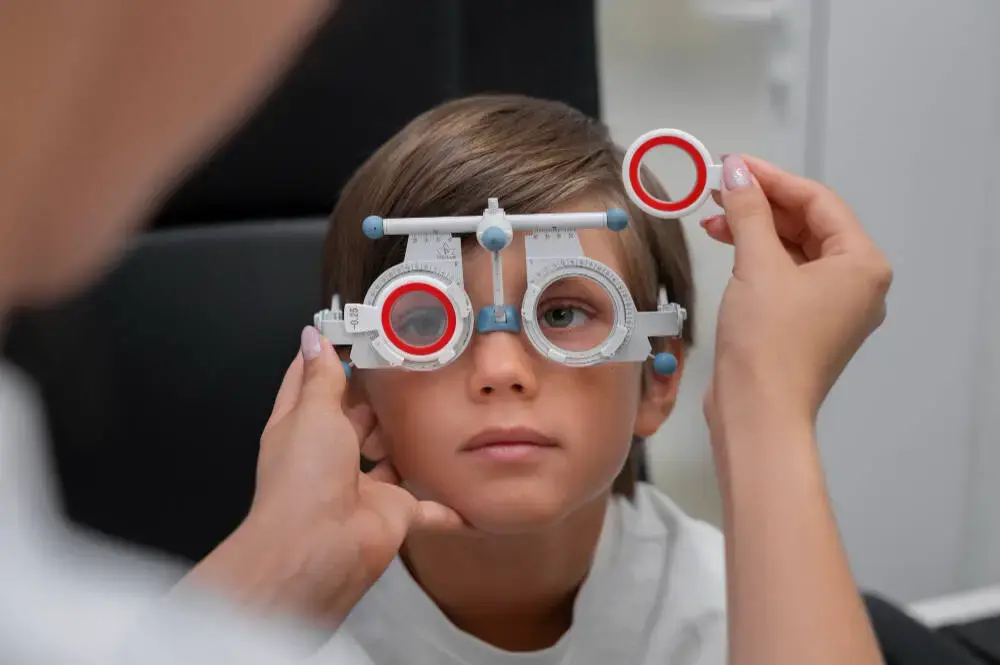
Spotting the Signs Between Exams
While regular checkups are essential, there are signs to watch for in between appointments. These could indicate a vision problem and warrant a visit to the eye doctor:
Squinting or holding objects very close to their face. This can be a sign of nearsightedness or farsightedness.
Covering or closing one eye frequently This could indicate strabismus or amblyopia. Tilting their head while trying to see. This might be a way for your child to compensate for blurry vision.
Complaining of headaches or eye strain. These can be symptoms of uncorrected vision problems. Avoid activities that require good vision, like reading or drawing. This could be a sign your child is struggling to see clearly.
Making Eye Exams a Positive Experience
Many children might feel apprehensive about visiting the eye doctor. Here are some tips to make the experience positive:
- Talk about the exam beforehand. Explain to your child what to expect calmly and reassuringly.
- Let them pick out a new toy or book to bring along.
- Choose a pediatric ophthalmologist or optometrist who are experienced in working with children comfortably.
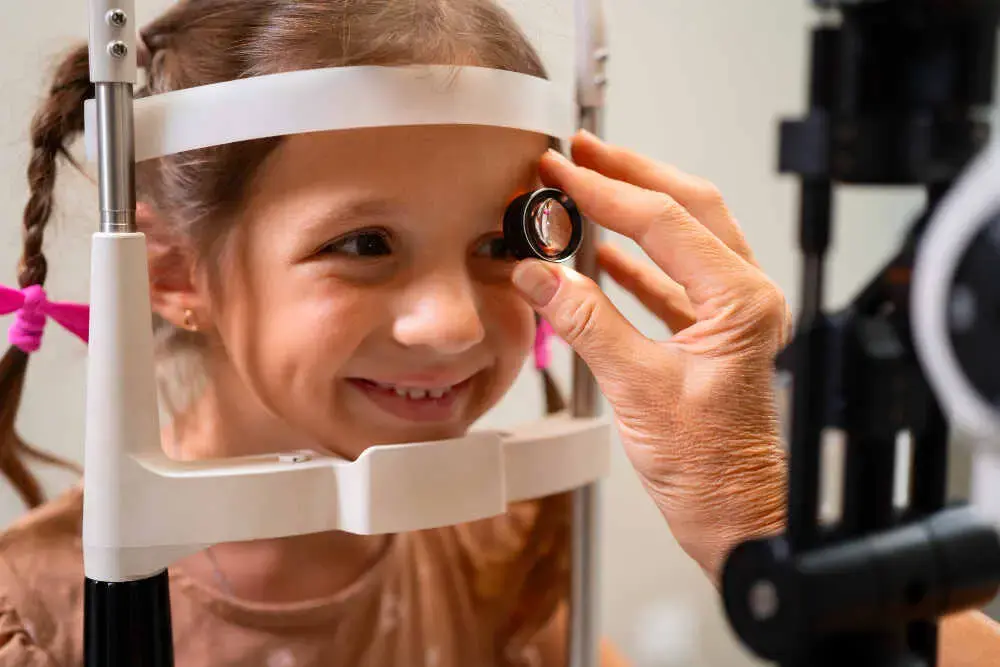
(FAQs) ABOUT CHILDREN'S EYE EXAMS
Q: At what age should my child get their first eye exam?
The American Optometric Association recommends a child's first eye exam between 6-12 months of age. Early detection of vision problems is crucial for proper development.
Q: My child passed their vision screening at school. Does that mean they don't need a full eye exam?
No. School screenings are a basic check and can miss underlying vision issues. A comprehensive eye exam by a qualified professional can assess overall eye health, focusing, and eye teaming, and detect conditions like amblyopia or strabismus.
Q: What are some signs that my child might need an eye exam?
Look for behaviors like
- Squinting or rubbing their eyes excessively
- Frequent headaches
- Holding objects close to their face
- Difficulty reading or focusing on distant objects
- Closing one eye to see better
- Avoiding eye contact
Q: How often should my child have eye exams?
After the initial exam at 6-12 months, another exam is recommended at age 3. - Before starting kindergarten, a comprehensive eye exam is crucial. - Once in school, yearly eye exams are recommended, or as often as your doctor suggests.
Q: Are glasses the only way to correct vision problems in children?
Not always. Depending on the condition, optometrists may recommend vision therapy, patching, or specific types of lenses. Early intervention and treatment are key.
Q: What vision problems are common in children?
- Myopia (nearsightedness): Difficulty seeing distant objects.
- Hyperopia (farsightedness): Difficulty seeing objects close up.
- Astigmatism: Blurry vision at all distances due to an irregularly shaped cornea.
- Strabismus (crossed eyes): When the eyes are not properly aligned.
- Amblyopia (lazy eye): Reduced vision in one eye due to abnormal development.
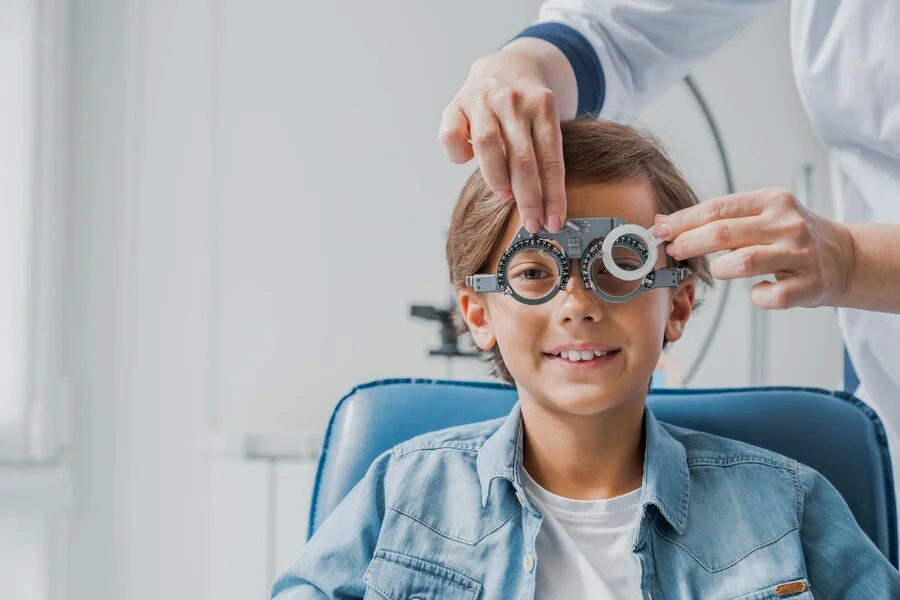
Elite Eye Care: Your Partner in Healthy Vision
At Elite Eye Care we understand the importance of children's eye health. Our team of experienced and friendly professionals provides a welcoming environment for your little ones.
We offer comprehensive eye exams tailored to each age group, ensuring your child's vision develops on track. Don't let your child's world become a blurry mystery.
Schedule an appointment at Elite Eye Care, the best eye care center in New York, and keep those curious young eyes sparkling!
